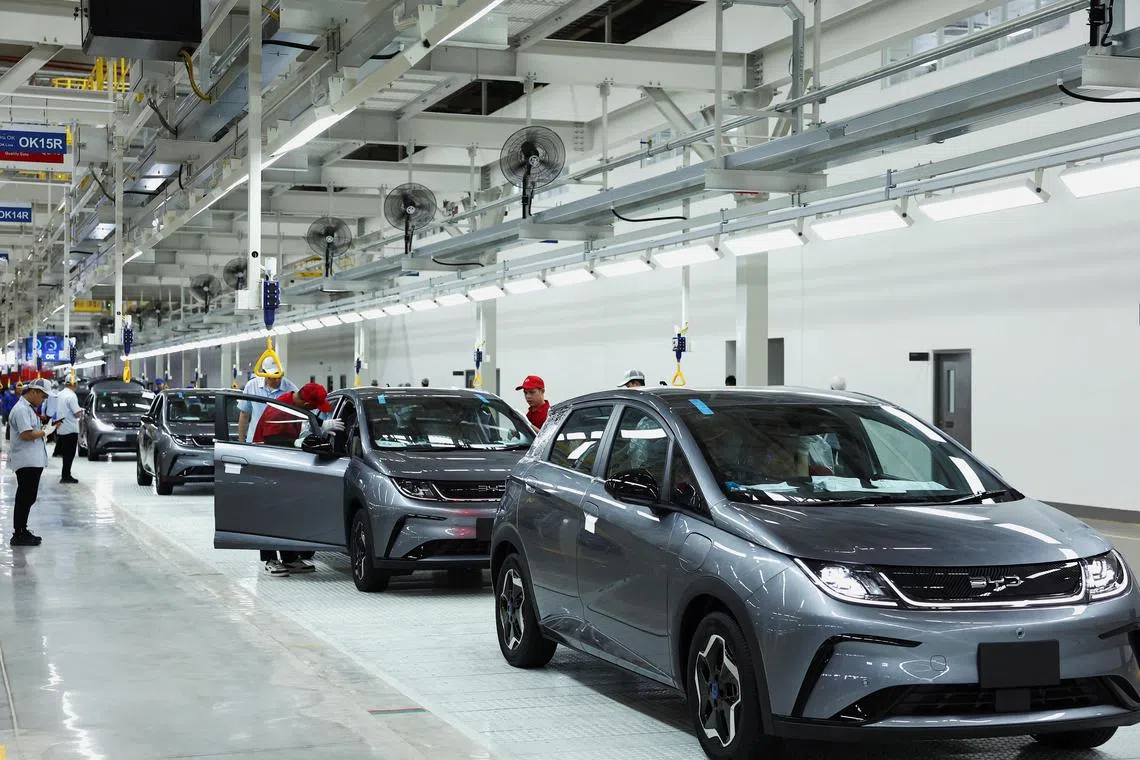IMF says China subsidy fears overdone in implicit critique of US
Sign up now: Get ST's newsletters delivered to your inbox

IMF officials noted that China's 1.2 million vehicle exports only account for about 1 per cent of Chinese goods.
PHOTO: REUTERS
Washington - The International Monetary Fund (IMF) said concern that China’s subsidies and other industrial policies are fuelling its growing trade surplus are misplaced, in an implicit critique of claims by the United States that Beijing is dumping its industrial “overcapacity” on the rest of the world.
China’s aid to manufacturers has only modest effects on exports, top IMF economists wrote in an analysis published on Sept 12. They highlight that support has been concentrated in areas including software, electric vehicles, computer chips and green technology that account for a fraction of overseas shipments.
The view that Beijing’s trade and industrial policy could lead to a second “China shock” of layoffs and plant closings in other economies is a popular one in Washington at the White House and Treasury Department. But it is “incomplete at best and should be replaced with a macro view”, the IMF officials said.
“External balances are ultimately determined by macroeconomic fundamentals, while the link to trade and industrial policy is more tenuous,” they wrote.
The IMF officials, led by chief economist Pierre-Olivier Gourinchas, did not explicitly criticise or call out the US government, which is the fund’s largest shareholder. The concern is not exclusively an American one, either, with the influx of cheap Chinese goods to global markets sparking a backlash in South America and Europe, too.
But the message is an obvious rejoinder to the kind of thinking that has come to dominate the view of China among both Democrats and Republicans in the US capital. American officials often vie to see who can be more antagonistic toward the US’s top geopolitical rival. And the IMF analysis follows a scathing critique of US deficits, debt and trade policies in the fund’s annual report card in June.
Rather than industrial policy, the IMF officials emphasise the role, since the Covid-19 pandemic, of a surge in saving in China, and elevated spending in the US. They note that while China has received widespread attention for producing nearly nine million EVs in 2023 – about two-thirds of global output – its 1.2 million vehicle exports only account for about 1 per cent of Chinese goods, and the country’s manufacturing surplus is not concentrated in subsidised products.
The fund officials urged China to “rebalance its economy” through reforms aimed at bolstering domestic demand. “An export-led growth model is no longer the economy’s blueprint,” they wrote. BLOOMBERG


